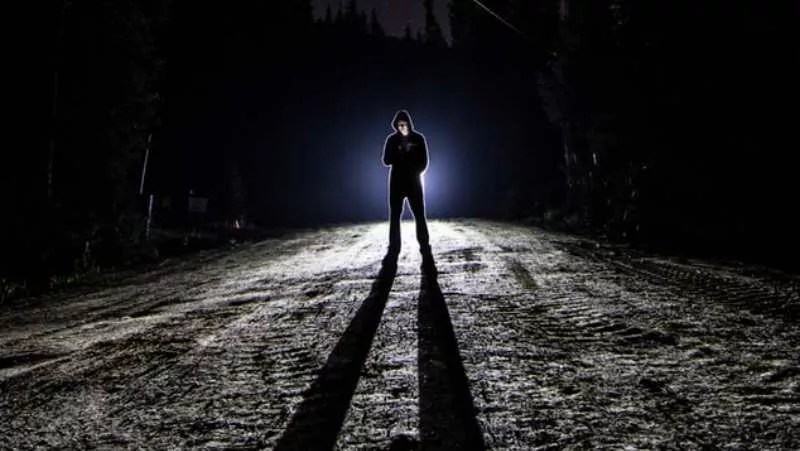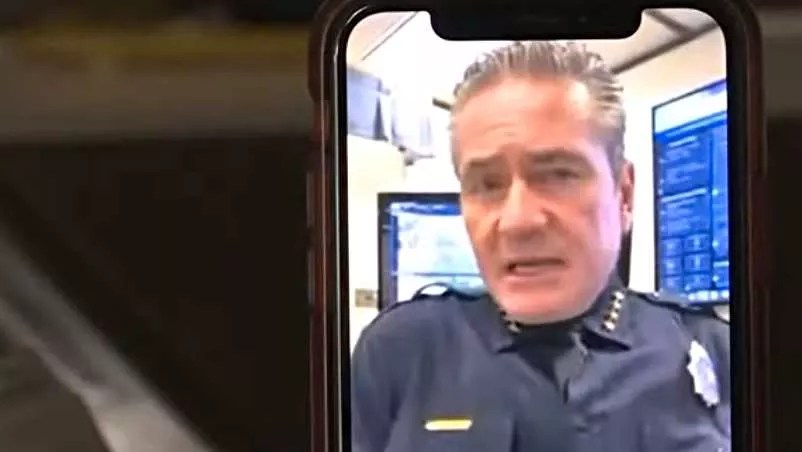
Photo by Lionello DelPiccolo on Unsplash

Audio By Carbonatix
Given the impact of the COVID-19 outbreak on so many aspects of society, it’s no surprise that it’s affecting crime as well. Denver Police Chief Paul Pazen confirms that the rates of some offenses have changed since 5 p.m. on March 24, when Denver’s stay-at-home order became official, and the locations of others have moved, since far fewer of us are out and about.
Pazen also addresses the need to keep officers safe in a job that demands direct interactions with the public, often under high-pressure circumstances – including when to don personal-protective equipment, or PPEs, and what kind to use.
“We’re pretty early into this process – just a little over a week into the stay-at-home order,” Pazen acknowledges. “And since we look at this hourly, daily, weekly, monthly and year-versus-year, it’s hard to say things are going in one direction or another. But we’re already seeing some things.”
Like, for instance, a decline in residential burglaries. “When the population is in their homes all the time, the data shows that those burglaries are down,” he confirms.
Are burglaries at businesses on the rise, because so many of them are closed? Not yet, Pazen says – and he credits this achievement to efforts undertaken specifically to prevent those crimes from happening. “Commercial break-ins are flat, if not down slightly, due to a pretty robust plan and strategy,” he explains. “We have dedicated officers to high-visibility patrol areas of responsibility, so we can have eyes and ears in commercial corridors. That can assist us in preventing those crimes from occurring in the first place.”
The number of people staying at home isn’t universally positive from a crime perspective, though. “When we’re putting people together during a time when all of us are dealing with high levels of stress and anxiety and uncertainty, that can manifest itself in different ways,” Pazen allows. “So we’re very closely monitoring any and all aspects of family violence to make sure we can still provide the services we need to provide.”
Specifically, Pazen reveals, “We’re transitioning into new ways of conducting our domestic-violence program. In some cases, we’ve been able to do a lot of outreach to folks who need assistance remotely, so that we can hopefully get people assistance before physical violence takes place.”

Denver Police Chief Paul Pazen is communicating in different ways these days.
9News via YouTube
The need to limit close personal contact as much as possible “has really made us rethink how we do business,” Pazen acknowledges. His staff has reached out to police departments and municipalities across the country, including on the West Coast, where the outbreak is at a more advanced stage than Colorado has experienced thus far, to get advice regarding best practices. Likewise, Denver personnel are busy researching previous international health crises, including those involving Ebola and SARS, to prepare for likely future developments.
Traffic enforcement has undergone significant alterations, too. Fewer cars has opened the roads to the temptation to speed – and officers have definitely noted the tendency of drivers to give in to this urge. But that doesn’t mean everyone who inches over the posted limit is guaranteed a citation.
An increase in speeding “is a concern as well,” Pazen confirms, “and we haven’t given up our enforcement efforts on it. But the theme of our COVID-19 law-enforcement approach is all about exercising good judgment and discretion. So when it comes to accident-causing violations, we are still enforcing those efforts. But we’re also trying to limit direct, face-to-face contact. So we’ve been learning from other departments across the country, and we’re benefiting from our team innovating and coming up with new tactics where we can adhere to social distancing but still keep the community safe – like doing a lot of things through the window of the vehicle and communicating in a different way.”
In the past, assaults and other violent crimes, often fueled by alcohol, have taken place in and around bars and clubs, which are closed right now. “Some of the locations where crime is happening have shifted,” Pazen concedes, “and we’re adjusting our approach to deal with it. But our team is still very active.” In recent days, for example, “they’ve taken illegal guns off the street and held folks accountable for some pretty high-level crimes.”
Denver patrol officers typically have access to two types of PPEs – what Pazen refers to as “a low-profile kit” and a “higher-profile kit.” The former consists of an N95 mask, designed to protect the wearer from inhaling the virus, plus gloves and safety glasses “that can be put on in a matter of seconds.” The latter “essentially covers officers from head to toe. “When we have discretionary time and are able to think through a response, instead of reacting immediately, it may make sense to wear the high-level kit,” he maintains. “It all goes back to exercising good judgment.”
Pazen emphasizes that the DPD hasn’t put its mission on hold during the pandemic. “In these uncertain times, the one thing I am absolutely certain about is the dedication, the commitment and the resolve of the women and men who make up the Denver Police Department,” he says. “We will be here today, tomorrow, next week and however long it takes to address this COVID-19 challenge. I couldn’t be more proud that our officers are working hard and doing an amazing job of keeping the people of Denver safe.”
Particularly under circumstances that are constantly in flux.